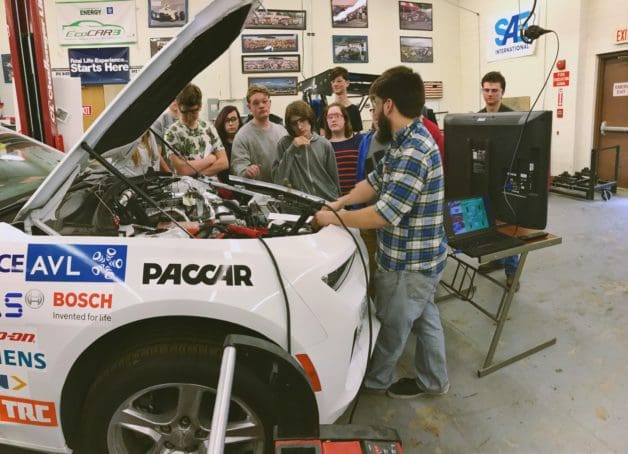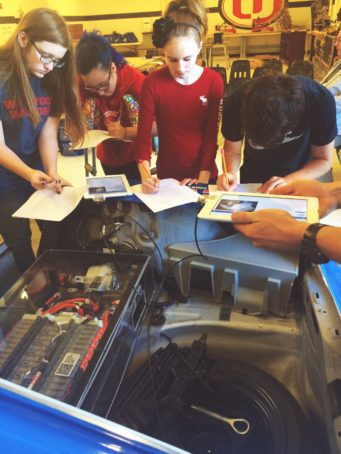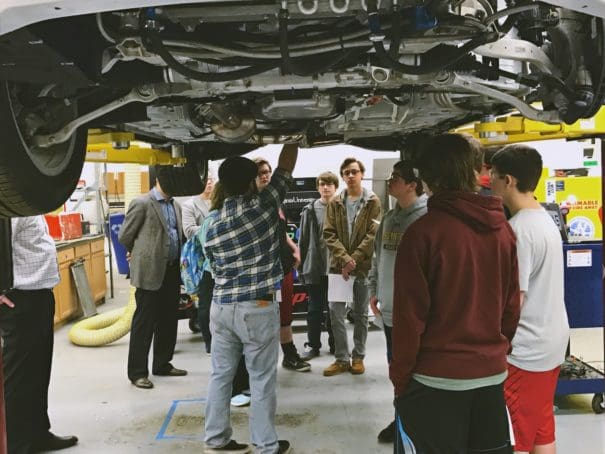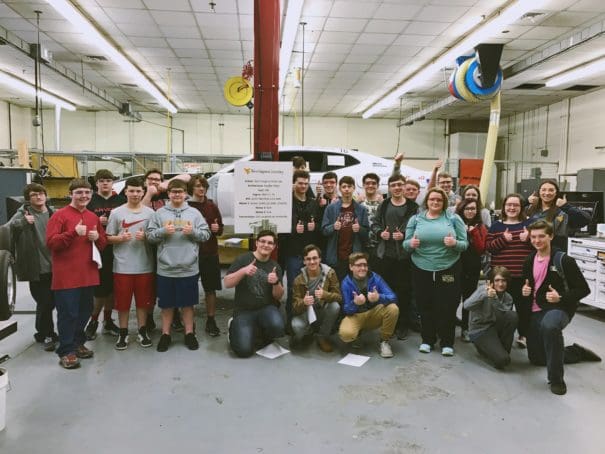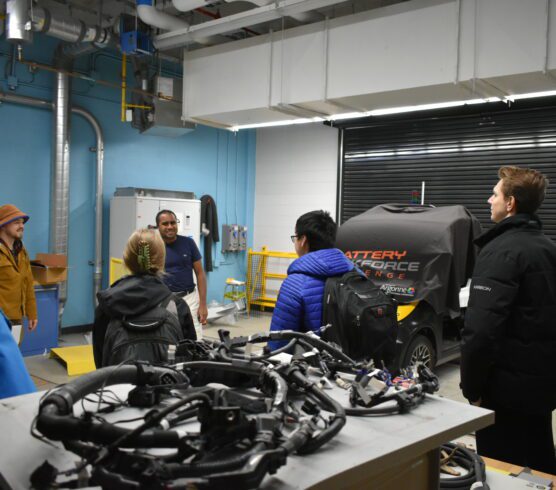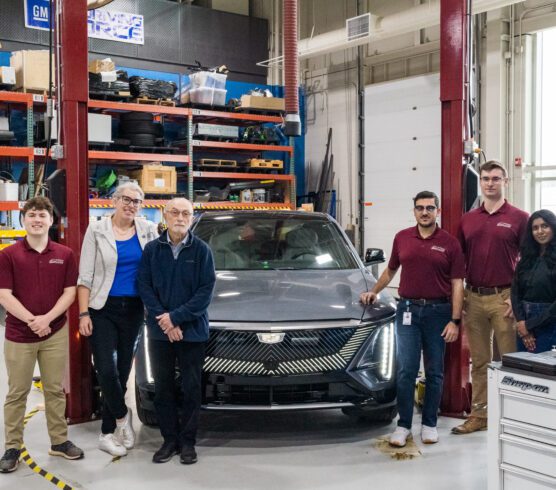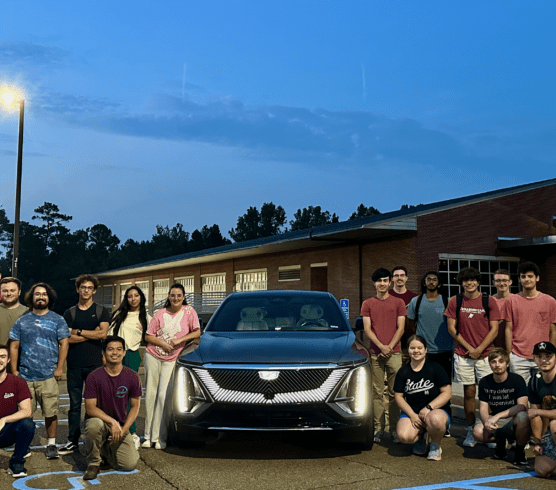Written By: Caitlin Worrell, Communications Manager – WVU EcoCAR3
New year, new experiences! In addition to continued vehicle progress, the WVU EcoCAR 3 team recently took a break from vehicle refinement tasks to share their hard work with a group of engineering students from a local Morgantown high school.
Over the last two years, WVU EcoCAR3 has developed a partnership with University High School in Morgantown, West Virginia. This local school provides the opportunity for students to specialize in the STEM field by offering engineering and a wide variety of technical classes. The team created a two-part outreach effort to engage these students in both their classroom and our garage.
Our first event, which was held in September 2016, featured WVU EcoCAR3 and the National Alternative Fuels Training Consortium (NAFTC). In this visit, NAFTC and WVU EcoCAR3 introduced students to the basic elements of hybrid technology. NAFTC provided resources such as an alternative fuels mobile classroom to further demonstrate the science behind hybrid vehicles.
“By working and seeing these programs in action, they begin to develop an understanding of how the STEM classes they are taking and the things they are learning can be practically applied,” explains William “Bill” Davis, NAFTC Director. “It gives them a greater incentive to keep learning and the knowledge that what they are learning has real meaning.”
WVU EcoCAR3 strives to foster greater opportunities for students to work with new technology, including those that NAFTC can provide.
“Visual cues, such as EcoCAR3 and others help the vision develop for students,” said Bill Davis. “It is no longer theoretical in a classroom, but real, right in front of them. This is the best type of learning.”
In the second part of our outreach, students had the chance to visit our facility at WVU and catch a first glimpse of the team’s Camaro hybrid. On January 12 UHS students toured the garage and vehicle, getting an inside look at some of the industry’s newest alternative fuel technology. Additionally, students put their own knowledge to the test as they created mock LED circuits with team members and participated in an ADAS 101 information session.
“The experience allows students to make the connection between academics and real world problem solving scenarios,” says Jeanne Oiler, an instructor at University High School. “The students also discovered that the success of such projects requires a cohesive and eclectic team. They were truly surprised to see students and instructors working from so many different areas working together on a single project.”
One of the greatest benefits of being part of the EcoCAR3 program at West Virginia University is not only redesigning the 2016 Chevrolet Camaro, but also sharing our knowledge with others. As Mountaineers, it is instilled in our heritage to always be an active member of the local community.
“This is one of the greatest experiences that I can offer my students. They leave not only with a wealth of knowledge in a variety of areas but feeling as though they are part of the team itself,” says Jeanne Oiler, Engineering teacher at UHS. “The entire WVU team took the time to fully explain every aspect of the event from communication and coding to mechanical and electrical. They provide the ‘why’ to all the questions that students their age have about studying STEM.”
WVU EcoCAR3 looks forward to continuing its partnership with University High School and NAFTC in Year 4 of the competition.
